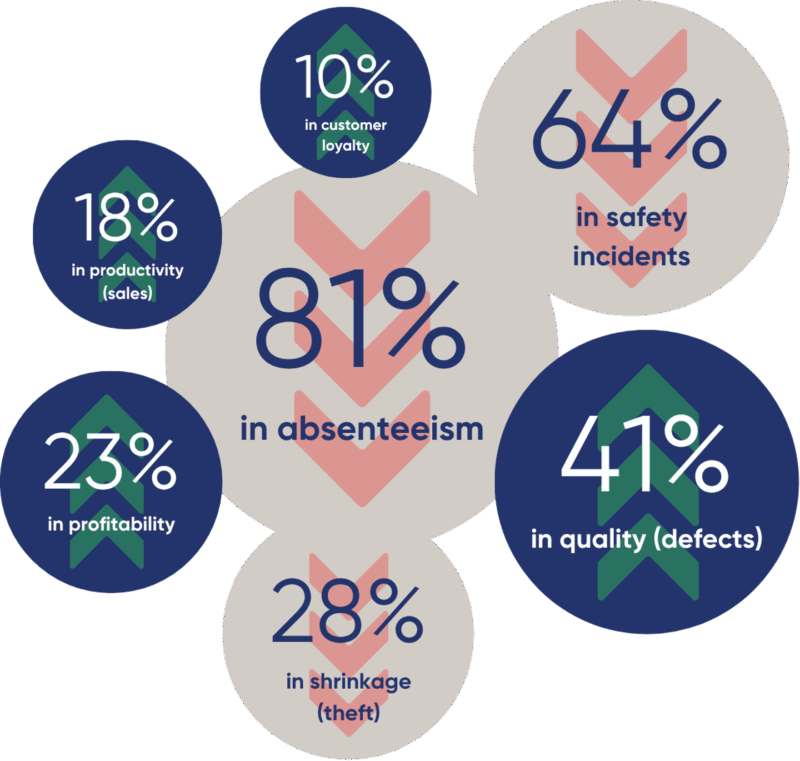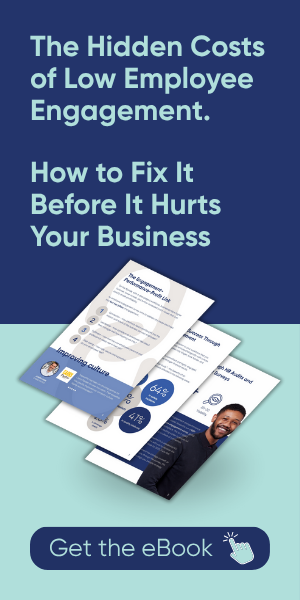Why these insights matter for your business
Understanding what employees want from work has become more important than ever. Retaining and engaging talent is no longer just about keeping people happy. It’s about driving productivity, innovation, and growth. At this year’s CIPD Festival of Work, Annabelle Jones, Senior HR Director at ADP, shared insights from ADP’s People at Work 2025 global study, which surveyed 38,000 workers across 34 countries.
The findings offer a valuable roadmap for employers who want to build workplaces where people thrive.
Key findings from the research
The study revealed that 85% of workers globally have just one job, and 77% of UK workers are content in their current roles. Engagement is improving slightly, but globally, fewer than one in five workers describe themselves as fully engaged. The research focused on four recurring themes:
- Career progression and skills development
- Reward and fairness
- Wellbeing and stress management
- The impact of technology and AI
Each of these areas is shaping the employee experience and influencing whether people stay, leave, or go the extra mile.
Gallup's study backs up the research
Improve the experience, influence and engage a workforce, and the benefits are evident. Gallup’s study shows this positively affects reduction in absenteeism, theft and safety incidents, while improvements in quality, productivity, profitability and customer loyalty:

Developing skills is a powerhouse for retention
Only 22% of UK workers strongly believe they have the skills needed to advance their careers in the next three years. That’s a worryingly low number. But there’s a clear upside: companies that invest in skills development are six times more likely to be recommended by employees and three times more likely to be seen as highly productive.
This is a powerful reminder that training isn’t just a nice to have. It’s a driver of loyalty and performance. Employers should be proactive in offering clear pathways for development and communicating those opportunities internally.
Wellbeing: Stress levels are improving, but workload is still a challenge
There’s good news on stress: levels have dropped slightly compared to last year, and 24% of workers now say they feel they’re thriving. A 3% improvement. However, 57% of UK workers describe themselves as “rattled”, and one in five feel overloaded.
One important insight from the study is the link between workplace monitoring and stress. Employees who feel they are being monitored are three times more likely to report negative stress. Employers using monitoring tools need to be crystal clear about why and how they’re being used. Transparency and communication are key as they will build trust.
Barriers to progression and discrimination
Around 15% of UK workers report experiencing discrimination, slightly lower than the global average of 19%. But the impact is significant: nearly a quarter of those affected say it lowers their productivity, and 65% are actively looking to leave.
Creating a genuinely inclusive culture isn’t just good ethics, it’s a retention strategy. Leaders should focus on:
- Proactively tackling discrimination
- Making career pathways visible
- Sharing internal promotion successes to reinforce the message that growth is possible
When employees see a future for themselves within your business, they’re more likely to stay and contribute at a higher level.
Harassment Prevention Training is a legal requirement, and critical to helping tackle and prevent discrimination in the workplace.


Fair pay and the fundamentals behind it.
It may not surprise you that fair pay remains the number one factor in job satisfaction. One in four UK workers still feel they aren’t paid fairly, and over 50% say they’ve been paid incorrectly at least once. Payroll errors might seem like a minor inconvenience that can be rectified, but it can quickly destabilize trust and make people look elsewhere.
Before employers can expect engagement initiatives to make a real impact, the basics have to be set in stone with accurate and timely pay.
Technology and AI
Technology is transforming the workplace, but depending on how it’s handled, it could either engage or alienate someone. ADP’s research shows that clarity is the differentiator: when employees understand what’s expected of them, they’re four times more likely to be productive.
On AI, the mood is cautiously optimistic. 14% of UK workers believe AI will have a positive impact on their job which is higher than the European average. Younger and more knowledgeable workers are the most enthusiastic about it. Leaders have an opportunity to position AI as a tool for empowerment, showing employees how it can remove admin tasks and free their time and effort to focus on more meaningful work.
The glue that holds it all together? Communication and leadership.
Annabelle emphasised two consistent enablers across all findings: leadership and communication. Even the best policies or benefits won’t work if employees don’t know about them or if leaders aren’t trained to connect with their teams effectively.
Regular check-ins, open conversations about career goals, and visible recognition of success all help create a culture where employees feel heard and valued.
With managers being the key reason that people leave an organisation, it’s never been more important to ensure they are trained properly – we firmly believe it’s a journey, not a destination.
Start with understanding
Okay, we know it sounds like a lot of components to keep up with the ever shifting workplace.
Our HR Growth Advisors at Howarths help you build a thriving culture of workers that are trained, engaged, focused and ready go the extra mile for your business. We start by firstly understanding – what makes your people tick – find out through HR audits and employee engagement surveys. Find out more in our eBook: The Hidden Cost of Low Employee Engagement.
We’re ready to do the heavy lifting so you can enjoy the fruits of high engagement and ultimately high profitability.




